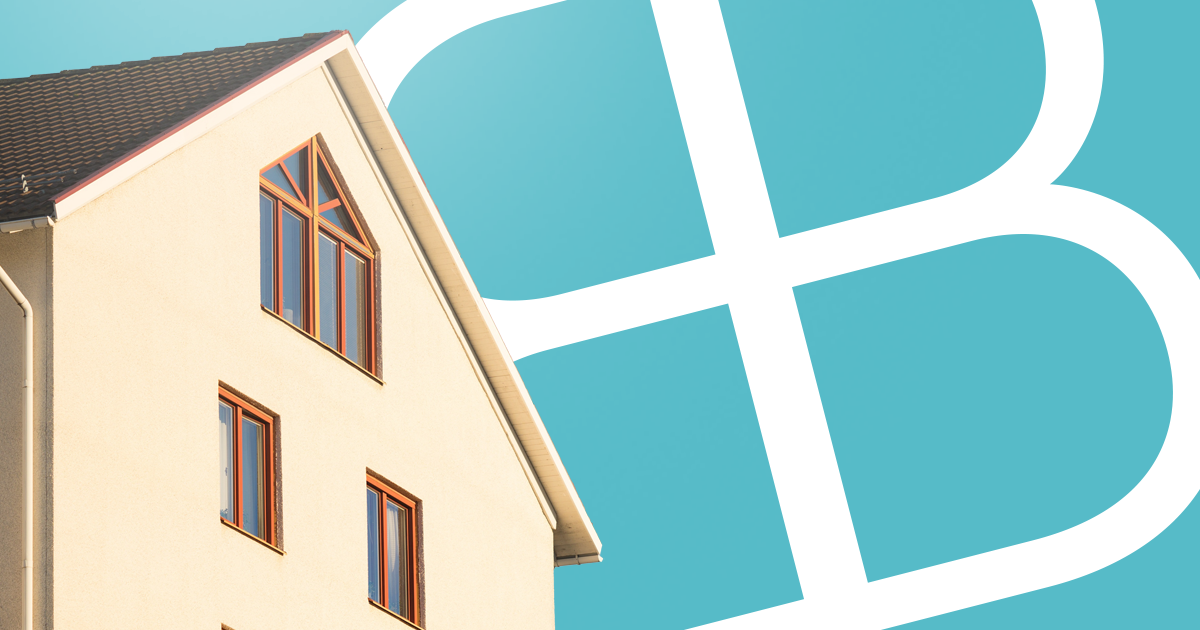What is a 100% Mortgage and How Does it Work?

Just over a decade ago, 100% mortgages were offered by many mortgage lenders, including standard high street banks, not just specialist lenders. By offering 100% mortgages, more people were able to afford to buy a property without the need to have saved up a large sum of money for a deposit. The mortgage market has changed, and 100% mortgages are now very rare, but there are still some available including Skipton.
What is a 100% mortgage?
A 100% mortgage is a mortgage loan that is for the entire value of the property, rather than for a percentage of the value, such as 90%. Essentially, you do not need to save up any money to put down as a deposit.
Temporary deposits
There are a few lenders who will provide a 100% mortgage on the basis that a temporary deposit is put down by a guarantor who will usually be a parent or other relative. The deposit is then placed into a savings account that is used to offset against the mortgage.
The deposit must remain in the account until a set date, usually when the mortgage holder has paid off the same amount of the loan as the value of the savings. The guarantor would not be able to withdraw any money from the account for the set period, but in some circumstances, they may be able to earn interest on their savings while it is held in the offset account.
Using a home as security
Instead of using savings to offset against a 100% mortgage, another option for a guarantor is to use their home as security. This is a more complicated arrangement and if the 100% mortgage holder misses loan repayments, by law, the lender could demand that the guarantor’s house is sold to repay the missed payments.
Why are 100% mortgages so rare?
In 2008, mortgage regulations became stricter, as regulators identified that high numbers of applicants were being approved for 100% mortgages that they could not afford and then ended up missing payments and even losing their property.
The stricter regulations have forced lenders to perform a more comprehensive affordability check on applicants and the request for a deposit helps to prevent a situation where there is negative equity. Negative equity, where the outstanding mortgage loan amount is higher than the value of the property, is a bad situation for both the lender and the homeowner, as they both stand to potentially lose out financially.
Free phone and video consultations are provided in the U.K.
Get StartedSkipton 100% mortgage
Most mortgage lenders now request a minimum of 5% deposit before they will approve a mortgage, which in the UK is an average sum of £10,000.
However, there are some 100% mortgage products but they are not as straightforward as the lender providing 100% of the loan, in the way that lenders historically did. The current 100% mortgage deals on the market do offer a 100% mortgage loan but there are certain requirements that must be met.
Skipton has launched their 100% mortgage product, but this is only available to first-time buyers who have a proven track record of paying their rent in full (or on time) for a at least 12 months. It is a five year fixed mortgage deal, but the main benefit is there is no deposit required.
Skipton Mortgage Eligibility Criteria
This mortgage is ideal for renters who are finding it hard to save up for a deposit. To be eligible, the following criteria must apply:
- First time buyer aged 21 or over (applies to all applicants)
- Need to provide proof of renting for at least 12 consecutive months
- Need to provide proof of keeping up to date with household bills for at least 12 consecutive months
- Can’t have any missed repayments over the past 6 months
- Not looking to buy a new-build flat
How much can I borrow for the Skipton 100% mortgage?
For most mortgage products, the maximum you can borrow is based on your income, outgoings and the lender’s specific affordability measures. However, for Skipton’s 100% mortgage the amount you can borrow must not exceed what you pay in rent per month. For instance, if you pay £800 a month in rent, your mortgage payments must also not exceed £800 per month. You will also still need to pass Skipton’s affordability tests and the maximum they will lend is £600,000.
See What Our Clients Have To Say
Advantages of a 100% mortgage
The one key benefit of being able to obtain a 100% mortgage is that you will not be required to save up a large deposit. For many people, a 100% mortgage supported by a guarantor is their only realistic way of owning their own property or being able to afford a property in the price range that they want.
You are able to get onto the property ladder sooner and start building up equity in your property to increase your chances of acquiring a better mortgage product when your fixed term comes to an end and you look to remortgage.
Risks of a 100% mortgage
100% mortgages are risky and lenders need to provide security against this risk, whether that be through offset savings or using another property as security. Rather than the risk lying with the mortgage lender, with these types of 100% mortgages, the guarantor accepts the risk instead.
The risks to them are that they could lose some or all of their savings, or they could even lose their home, if they have agreed to secure the loan against that. Before a guarantor decides whether to agree to the terms of the 100% mortgage, they should consider how big the risk is to them.
They should decide whether the person they are acting as guarantor for will be able to manage their mortgage repayments and will not put their savings or home at risk. If the homeowner defaults, the parent or relative may never get their savings back, so it is a decision that must be taken cautiously.
Even if the guarantor trusts the mortgage applicant to be responsible with their financial commitment to paying the mortgage, a change of circumstances could mean that they were unable to make the repayments.
For example, they could lose their job, or their contracted hours could be reduced, lowering their salary. They could split up with a partner who was contributing towards paying the mortgage and then couldn’t afford the mortgage on their own. All of these scenarios should be taken into account.
If the homeowner defaults on their mortgage, as well as losing out financially, the guarantor could also have a difficult situation to deal with, in regards to damaging their relationship with their child or relative.
Potential negative equity
There is also potential for negative equity to be higher. If the outstanding loan amount is £250,000 and the property market dips, the property could very quickly lose value and after six months, the loan would still be close to £250,000, whilst the value could be £235,000.
The quicker that you pay off your mortgage, the less chance of negative equity, unless there is a dramatic crash in the property market.
Higher interest rates
Most 100% mortgage products are only available at higher interest rates than standard mortgages. You might also find that it is much more difficult to find this type of mortgage, so you could spend a while trying to find one, unless you work with a whole-of-market broker, such as Boon Brokers.
No guarantor
The main dependency of being able to obtain a 100% mortgage is that you have somebody who agrees to act as a guarantor and take on the risk themselves.

Even then, they will need to meet the criteria to make them eligible for being a guarantor, including good credit history and having enough savings or equity in their property to offset against the loan.
If you do not have someone willing to be a guarantor and who qualifies to be one, then you will not be able to obtain a 100% mortgage.
What alternatives are available?
If the idea of saving up a 20% deposit is out of the question, there are mortgage products for lower deposits of either 5% or 10%. The mortgage lending market adapts frequently to reflect the strength of the economy and to protect lenders from new risks that may appear, such as the COVID-19 pandemic. In one or two years, there could be more low deposit mortgage deals available. There might even be more 100% mortgage options if you choose to wait a while.
The other factor that could help you to buy a house is if the housing market dips and house prices start to come down. If you are still earning the same amount, you will find it easier to find a property you like at a lower value, which would also mean a smaller deposit would be required. For example, if a property was worth £250,000 in 2023 but in the next year sees a decline in value to £230,000, a 5% deposit would be £11,500 instead of £12,500.
Deciding if a 100% mortgage is right for you
A 100% mortgage can be the ideal option for people who have a guarantor but there are many risks to consider, especially the consequences of missing payments on the mortgage. Instead of facing the financial repercussions yourself, your guarantor would also be negatively impacted, so you have to decide between you whether that is a risk you want to take.
If you are not in an urgent situation where you need to buy a property immediately, waiting for more mortgage products to become available could work in your favour. It could also give you more time to save up some deposit, so that you have more options available in 12 months or however long you decide to wait.
The mortgage market can change quickly, just because there are no options for you right now, that does not mean that you will never be able to afford your own home.
Before you consider applying for a 100% mortgage, or any other financial product, it is advisable to talk to a whole of market broker for advice. They will be able to explain all of the current options available to you, including government schemes and make you aware of any potential risks that you may not have considered.
At Boon Brokers, we provide fee-free and impartial advice on whether a 100% mortgage is right for you or whether another product would be more suitable. Get in touch with us today to start discussing your mortgage options.
Gerard BoonB.A. (Hons), CeMAP, CeRER
Gerard is a co-founder and partner of Boon Brokers. Having studied many areas of financial services at the University of Leeds, and following completion of his CeMAP and CeRER qualifications, Gerard has acquired a vast knowledge of the mortgage, insurance and equity release industry.Related Articles
- What Is A Guarantor Mortgage
- What Is A Shared Equity Mortgage?
- Mortgage Brokers vs Comparison Sites
- Purchasing A Property With Shared Ownership
- What Mortgage is Best for a First Time Buyer?
- What Is A Mortgage In Principle?
- How to Decide the Length of Your Fixed Rate Mortgage?
- Getting a Mortgage with Bad Credit
 Authorised and regulated by the Financial Conduct Authority. No: 973757
Authorised and regulated by the Financial Conduct Authority. No: 973757




